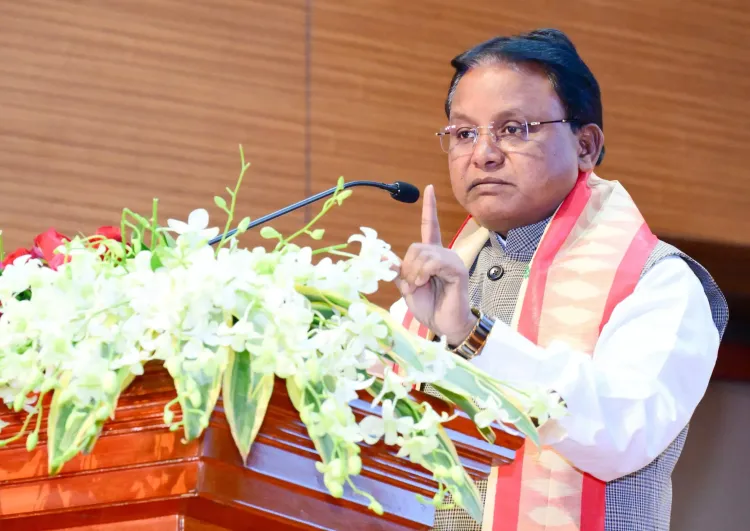Odisha Government Releases Guidelines for 'Bikashita Gaon Bikashita Odisha' Initiative

Synopsis
Key Takeaways
- Launch of 'Bikashita Gaon Bikashita Odisha' (BGBO) scheme.
- Focus on infrastructural development in rural areas.
- Inclusion of various projects like roads and civic amenities.
- Support for education and sports infrastructure.
- Funding allocation based on community needs and population.
Bhubaneswar, Jan 30 (NationPress) The Odisha government has unveiled guidelines for the execution of the 'Bikashita Gaon Bikashita Odisha' (BGBO) initiative, which seeks to significantly enhance the rural economy through infrastructure development.
The scheme is designed to address critical gaps, fostering accelerated and inclusive growth in rural Odisha by initiating various sustainable development projects. This will lead to the advancement of diverse infrastructure types, serving as a gateway to achieving the goals of Bikashita Odisha, according to a notification from the Panchayati Raj and Drinking Water Department issued on January 28.
Guidelines specify that various projects, including roads, bridges, and culverts (covering both inter and intra-village roads), can be undertaken under this initiative.
Additionally, it recommends connecting unlinked villages in Particularly Vulnerable Tribal Groups (PVTGs), areas affected by Maoist activities, and remote hilly regions through intra- and inter-village roads.
Moreover, the construction of civic facilities and amenities such as Kalyan Mandap, community centers, bathing ghats, changing rooms near water bodies, market sheds, drainage systems, bhagabat tungis, and bhoga mandaps is mandated in villages statewide under the BGBO initiative.
Funds allocated for the scheme can also be utilized for enhancing educational and sports infrastructure in rural locales.
The local administration is encouraged to leverage the funds for the development of micro tourism spots based on local needs.
Up to 5 percent of the total sanctioned funds can be allocated for new innovative projects aimed at community benefit. Similar projects undertaken by the Panchayati Raj & DW department and other departments may be integrated under this scheme, as mentioned in the notification.
Projects with estimated costs below Rs 3 lakh will not be eligible for funding under the scheme.
Ongoing projects from the previous Ama Odisha Nabin Odisha (AONO) scheme can be completed under this new initiative, provided that at least 20 percent of the budget has already been spent.
The Panchayati Raj & DW department clarified that projects should focus on development. It also stated that funds would be allocated strategically to prioritize projects, especially in underdeveloped and marginalized areas, ensuring equitable growth.
Funds will be distributed to Zilla Parishads, which will then allocate resources to Blocks and Gram Panchayats based on their respective populations, as informed by the Panchayati Raj & DW department notification.
In villages, Gram Sabhas will create a need-based Five Year Perspective Plan, from which an Annual Action Plan for each financial year will be formulated by Blocks.
The Technical Committee at the Block and Panchayat Samiti levels will review the project lists submitted by the Gram Panchayats before recommending them to the District Collector for final approval.
Panchayat Samitis across the state will carry out the projects in their jurisdictions, while district collectors will oversee the proper execution of these initiatives.
It's noteworthy that the new BJP government has introduced the 'Bikashita Gaon Bikashita Odisha' scheme, replacing the previous Ama Odisha Nabin Odisha initiative from the prior BJD government.
The BJP government has allocated Rs 1,000 crore for this scheme for the financial year 2024-25.










